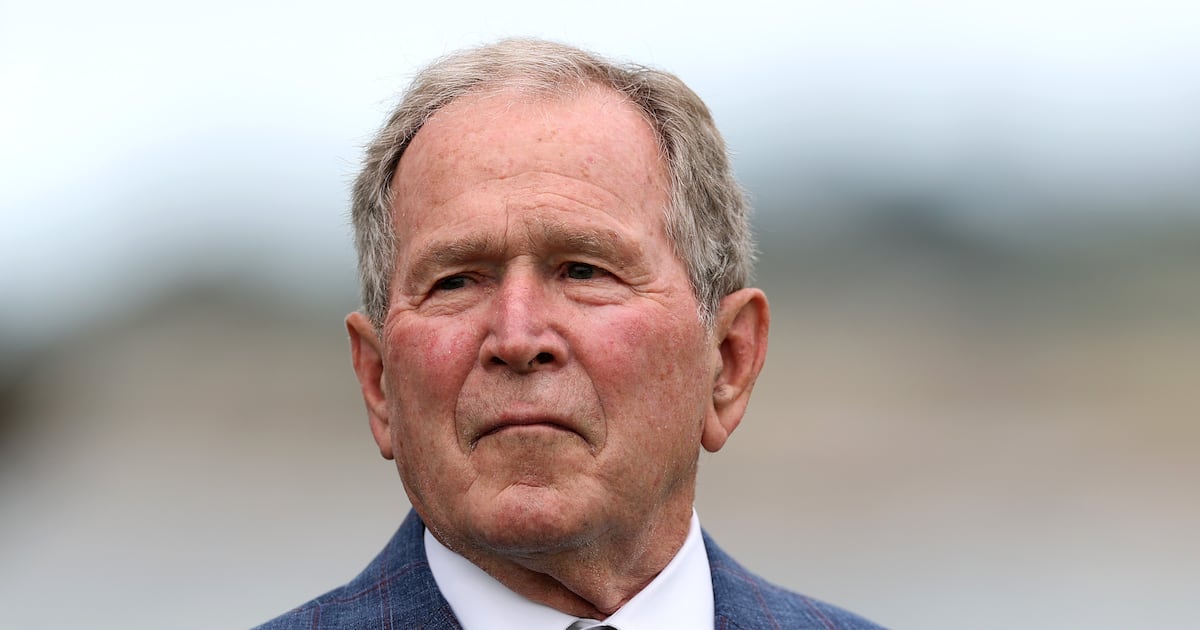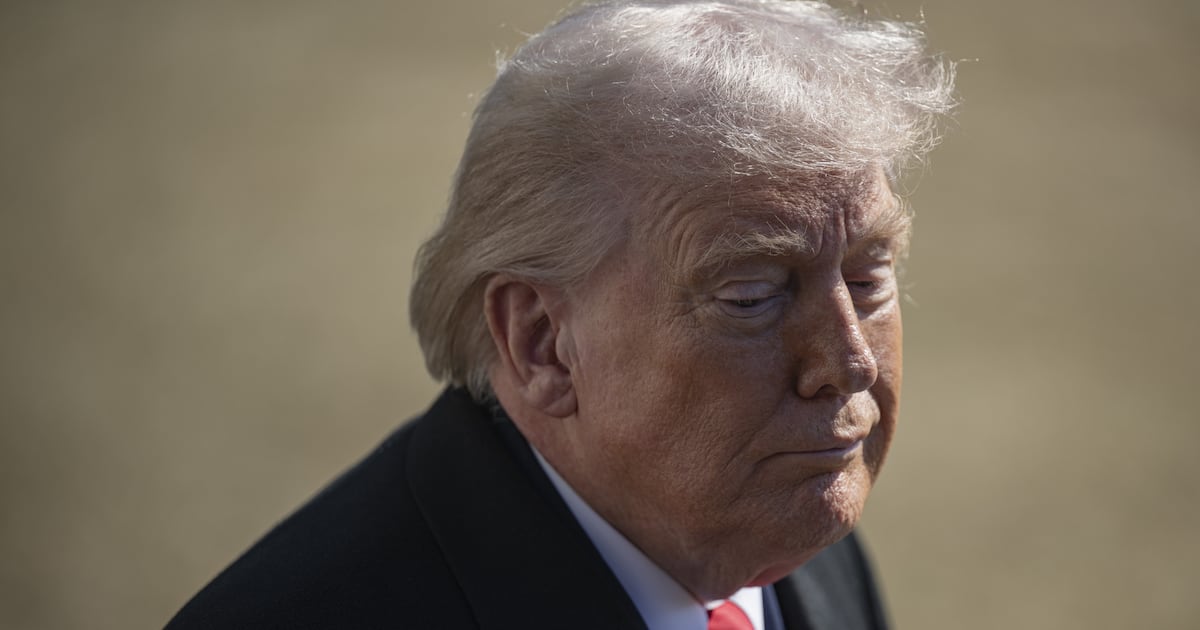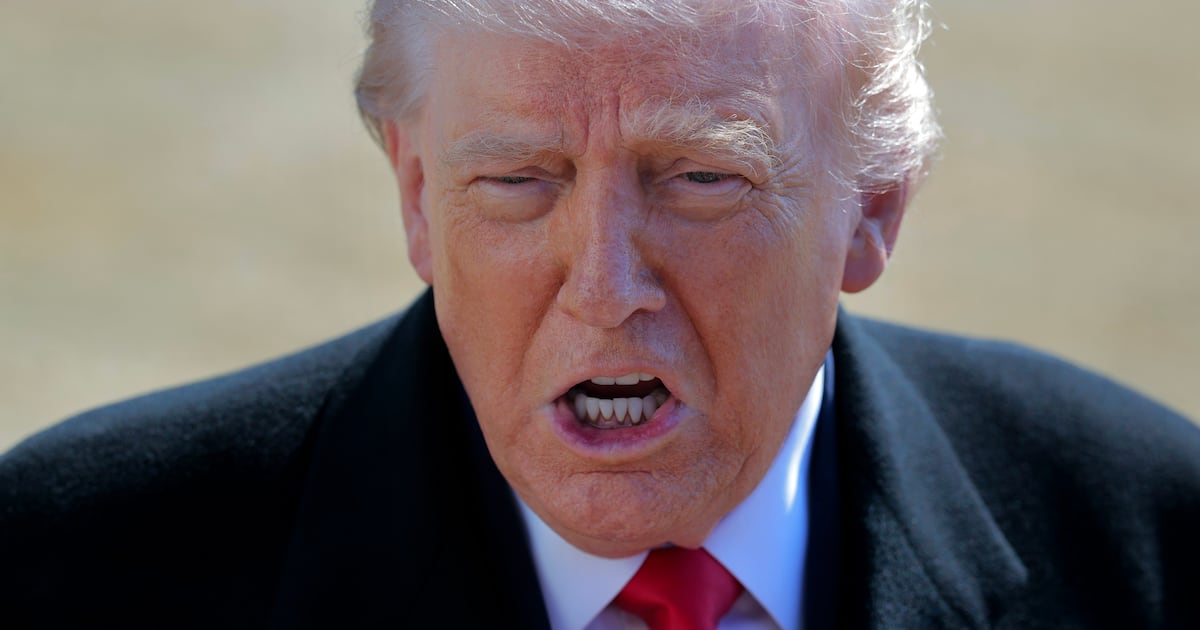Just hours before the the first of three invitation-only “friendship” concerts meant to revive relations with China, North Korea suddenly canceled the performances—and put its leggy girl pop group on an Air Koryo flight back to Pyongyang.
Beijing’s 2,200-seat National Center for the Performing Arts, where the 21-member Moranbong Band had been scheduled to perform Saturday for Chinese officials, dignitaries, and business leaders, said only that the shows had been canceled “due to certain reasons.” China’s official Xinhua News Agency reported that the concerts “cannot be staged as scheduled due to communication issues at the working level.”
So what happened to North Korea’s “dancehall diplomacy”? Speculation is rife that North Korea’s volatile young leader, Kim Jong Un, ordered the band back home to silence chatter about his past sexual relationship with Hyon Song Wol, the leader of the pop group, whose members were handpicked by Kim when he formed it in 2012. Comments in the Chinese media and on social media may have prompted complaints from Pyongyang.
Hyon disappeared from sight in 2013, and some feared she had been put to death. She reappeared in 2014, however, and was in Beijing last week with the group, which mixes old-style Kim-regime propaganda with strings and synthesizers.
“The Moranbong Band ticks all the boxes of a manufactured girl group,” noted London’s Telegraph. “Their skirts are short, the hair is trendy, the music danceable.”
The theory sounds bizarre, but it makes sense in the context of Kim-style politics. Kim’s China diplomacy, after all, has been nothing if not erratic. As Bruce Bechtol, author of North Korea and Regional Security in the Kim Jong-un Era, told The Daily Beast, it appears “the decision to bring the band home came from the very highest levels,” and this suggests Kim made a decision without much analysis or forethought.
What makes the Hyon theory intriguing is that the North, at the time of the walkout from Beijing over the weekend, also ended talks with South Korea in the border city of Kaesong without a customary joint statement or a scheduled date for a further round. In the South, the media in recent days was also buzzing about Hyon’s personal relationship with Kim. So Pyongyang shut down its political and cultural exchanges with both South Korea and China on the same day.
The apparently coordinated actions may or may not have had anything to do with Hyon, but the Kims are notoriously quick to take insult. As Yang Moo-jin of the University of North Korean Studies in Seoul told the Associated Press, “There are few things the North takes more seriously than an attack on the dignity of its supreme leadership, and it might have decided to bring the female members of the band back quickly to cut off such reports.”
So odds are that the unexplained action was related to the Hyon rumor, especially because Kim looks insecure at home and cannot afford to be held up to ridicule abroad. The world witnessed similar unbalanced actions last year when Sony Pictures released The Interview, a movie mocking the young leader.
In any event, North Korea just slapped China in the face with the cancellations of the Moranbong tour. That’s an example of Kim’s “immature statesmanship,” Korea analyst Robert Collins told The Daily Beast.
The incident is important because it shows the volatile nature of North Korea’s diplomacy, he said. “Kim’s inexperience at the diplomatic level is crippling his ability to serve regime goals that include solidifying relations with allies,” Collins noted. If Kim cannot maintain stable ties with China, the only country that keeps his ruling group in power, then the rest of the world has little chance of establishing decent relations with him.
The announcement of the concerts had been viewed as evidence of the long-awaited thawing of relations between the two neighbors. Kim had downgraded ties after he executed his uncle, Jang Song Thaek, who handled Pyongyang’s dealings with Beijing.
Since then, Kim’s relations with his only sponsor have been at best aloof and often hostile. Only recently have there been warming signs, such as the welcoming of Liu Yunshan, the fifth-ranked member of China’s Communist Party, during the events in Pyongyang in October marking the 70th anniversary of the founding of the Korean Workers’ Party.
Apart from the speculation about Hyon, there is one other theory for the concert cancellations. The North had initially wanted President Xi Jinping or Premier Li Keqiang to attend Saturday’s performance, but China instead offered to send one of its Politburo members. Pyongyang finally agreed. Yet in response to Thursday’s announcement that Kim had bragged about his possession of the H-bomb, the Chinese said they would only send someone of vice-ministerial rank, according to Yonhap, South Korea’s semi-official news service.
That move prompted the North Koreans to cancel, Yonhap reported, citing a source close to “a Chinese government official with knowledge of the situation.”
But the Yonhap story, which may sound plausible to foreigners, is not consistent with how these two states deal with each other. Chinese officials have generally taken an indulgent view of Kim’s antics, especially when they do not directly undermine their country’s interests.
In this case, Kim’s H-bomb boast actually boosted China’s standing by reminding Washington and other capitals that they need Beijing’s assistance to rein in the North Koreans, portrayed by the Chinese as especially unstable and dangerous.
Even if Chinese officials were peeved—and there is little to suggest they in fact were—it’s unlikely they would abrogate their protocol agreement with Pyongyang in light of such a minor provocation. On Monday, China’s Foreign Ministry, in a terse comment from spokesman Hong Lei, reaffirmed Beijing’s cultural ties with North Korea.





